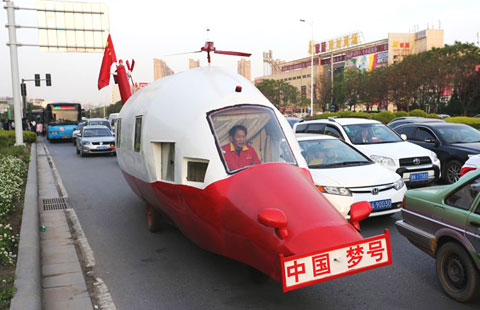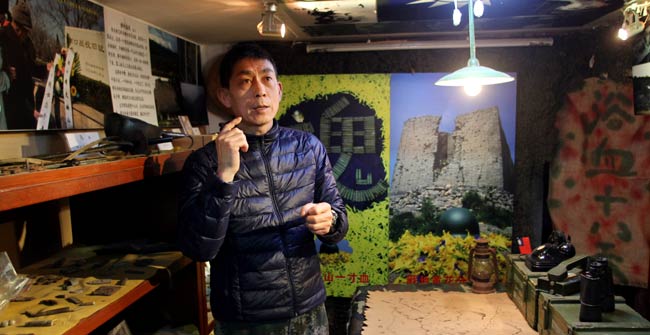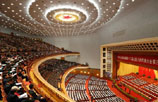Chengdu report: Four-city zone to boost western region
(China Daily) Updated: 2015-04-23 10:03Tang Liangzhi, the mayor of Chengdu, proposed a new economic development plan based on the country's "One Belt, One Road" initiative and the Yangtze River Economic Belt strategy during the annual two sessions meeting of the National People's Congress and the Chinese People's Political Consultative Conference in March.
The plan would create an economic circle made up of Chengdu, Chongqing, Xi'an and Kunming to integrate development in western China. Connecting the four cities on a map with lines creates a diamond shape and the plan was dubbed the "diamond economic zone" project.
Last year Chengdu's GDP exceeded one trillion yuan ($161 billion) and the total GDP of the four cities reached 3.3 trillion yuan, accounting for a quarter of the total in the western region.
Wang Mingxin, chairman of Chengdu Xingu Investment Co Ltd, said that the diamond economic zone project heralded a new "golden era" for local entrepreneurs.
Wang has worked on science and technology incubator programs for several decades. The zone will integrate the different advantages of the four cities in terms of their location and resources, to make a very competitive city cluster and bring more opportunities to both startups and high fliers in Chengdu, according to Wang.
Luo Xia, deputy dean of the School of Transportation and Logistics at Southwest Jiaotong University, one of the top universities in Chengdu, was quoted by Chengdu Daily as saying that the project offers a large platform and will benefit many people.
The country has been promoting the "One Belt, One Road" initiative, which refers to the Silk Road Economic Belt and the 21st Century Maritime Silk Road, with the purpose of rejuvenating the two ancient trading routes and further opening up markets in a mutually beneficial manner.
According to Luo, the "diamond economic zone" can draw on the publicity and resources of the "One Belt, One Road" to cover a large area. She suggested that Chengdu should further its transportation and logistics development, and the city should offer more platforms, channels and logistic centers to tap into the Yangtze River Economic Belt.
Sun Ming, director of the Chengdu Federation of Industry and Commerce, was quoted as saying that the diamond project was an upgrade of the country's Western Development project.
According to Sun, private enterprises in the city can therefore join more large infrastructure and public service projects and have more opportunities to interact with a larger market.
Huo Weidong, dean of the School of Economic Information Engineering at Southwestern University of Finance and Economics, was quoted as suggesting the city should carry out a substantial and long-term working scheme and also pay more attention to the importance of the market.
Huo said that there should be events like the "mayors forum" to discuss and tackle issues and difficulties in regional development. There should also be a special organization to carry out all the work. Huo also said that obstacles in trade and other sectors among the four cities should be broken down and all the talent and financial resources should be integrated.
As well as the diamond project, the mayor also proposed building a free trade zone and a State-level innovation demonstration area in the city.
Economists said that the zone is expected to be a new economic growth engine for the country and will further link and balance the region's development.
The Israel Consulate in Chengdu opened in November 2014, the nation's fourth consulate in China after setting up others in Shanghai, Guangzhou and Hong Kong. New Zealand also set up a consulate in Chengdu in the same month.
The city is home to 12 consulates, ranking it among the top three cities with the most consulates in the country.
In 2014, nine Fortune 500 companies moved to Chengdu, increasing its total to 262. The number of friendship cities reached 36 last year.
The city opened more than 82 international and national air routes, covering 186 cities around the world.
Construction of a new airport is also due to start this year. The new airport is expected to serve some 90 million passengers every year.
The city has started new railway routes to a range of cities in Asia and Europe since the Rong-European high-speed train opened in 2013 further strengthening Chengdu's position as a logistics hub in the western area. By the end of April, the return trains of the Rong-European route will start operation.
According to the Chengdu Development and Reform Commission, the city has also stepped up its efforts in regional and international cooperation.
With regions covered in the "One Belt, One Road" initiative, there will be cooperative projects in industry, technology and market integration. A range of industrial and science parks are under development. The city government also encourages top local companies to go multinational.
In February, Chengdu launched the "Venture Tianfu, Qingronghui" project to encourage more young people to start their own businesses in the city.
Attracted by the city's good investment environment and entrepreneurships, Wanda Group signed agreements with the Chengdu government to boost cooperation.
In the coming five years, Wanda plans to invest at least 102 billion yuan to build a series of international-level projects covering cultural tourism, medical care, e-commerce and modern services, which will make Chengdu its biggest investment destination in China.
The city also welcomes consulates and international institutions to settle down.
There will also be more long-standing cooperation between the city and European cities in culture, education and tourism.
Furthermore, Chengdu aims to be a world-class tourist destination and shopping paradise.
The city will also develop its iconic panda and world-renowned cultural heritage into cultural and tourist brands to attract conferences and summits.
Its advantages in the high-tech industry, education and human resources as well as culture and living environment mean the city expects to attract more investment and opportunities from around the world, according to local officials. By proposing the new zone project, Chengdu is again seeking to contribute to regional economic cooperation and maintain its position as a key city in the area, the local officials said.
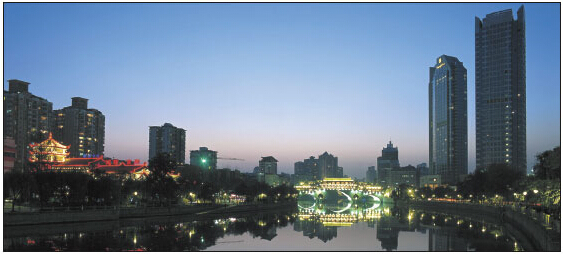
As a vital bustling business center, Chengdu has progressed with new plans and directions. Photos Provided To China Daily
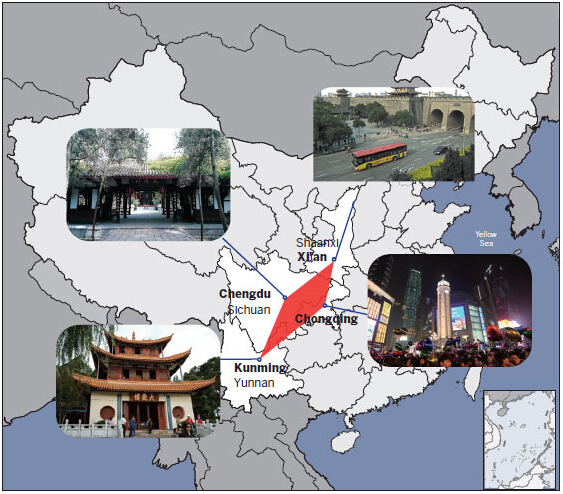
The 'diamond economic zone' would advance the 'One Belt, One Road' initiative.
- Interpol issues red alert for Chinese runaway officials
- Li tells FTZs to be bolder over reforms
- Days of severe air pollution rise in region
- Xi upholds spirit of cooperation
- China releases wanted list for worldwide fugitive hunt
- HK reveals universal suffrage package for 2017 leader
- Warehouse sealed after rice quality questioned
- Online system to crack down on fake IDs
- Tough laws to limit tobacco, milk ads
- Official investigated over desert pollution
